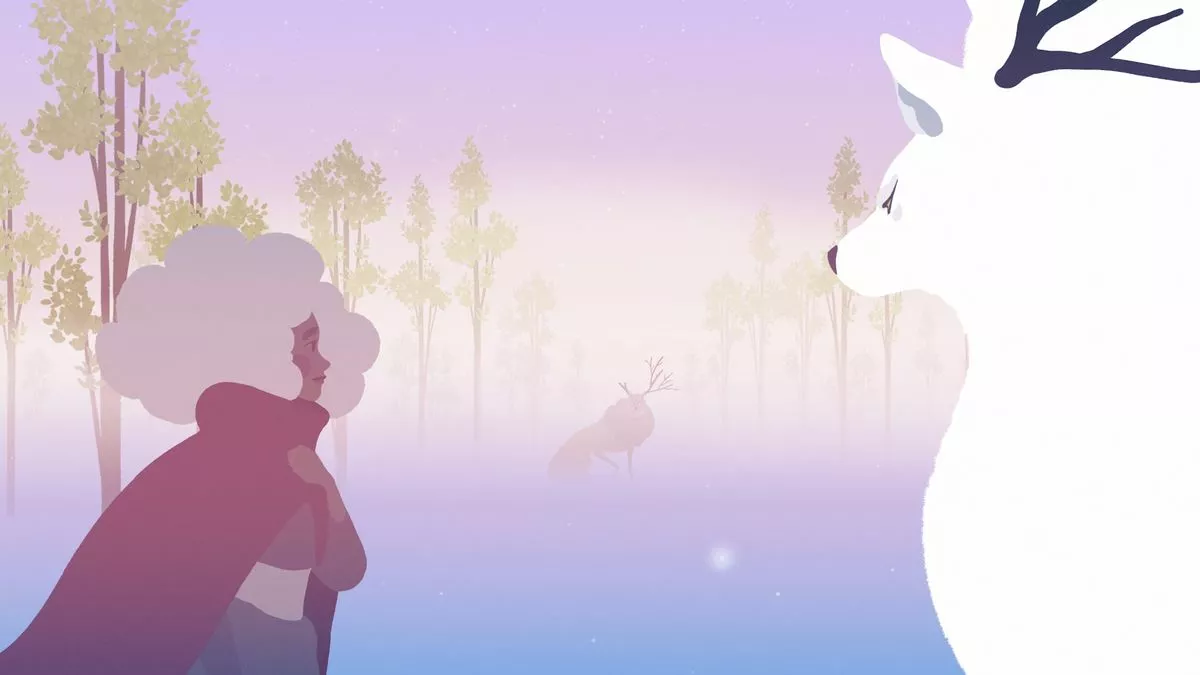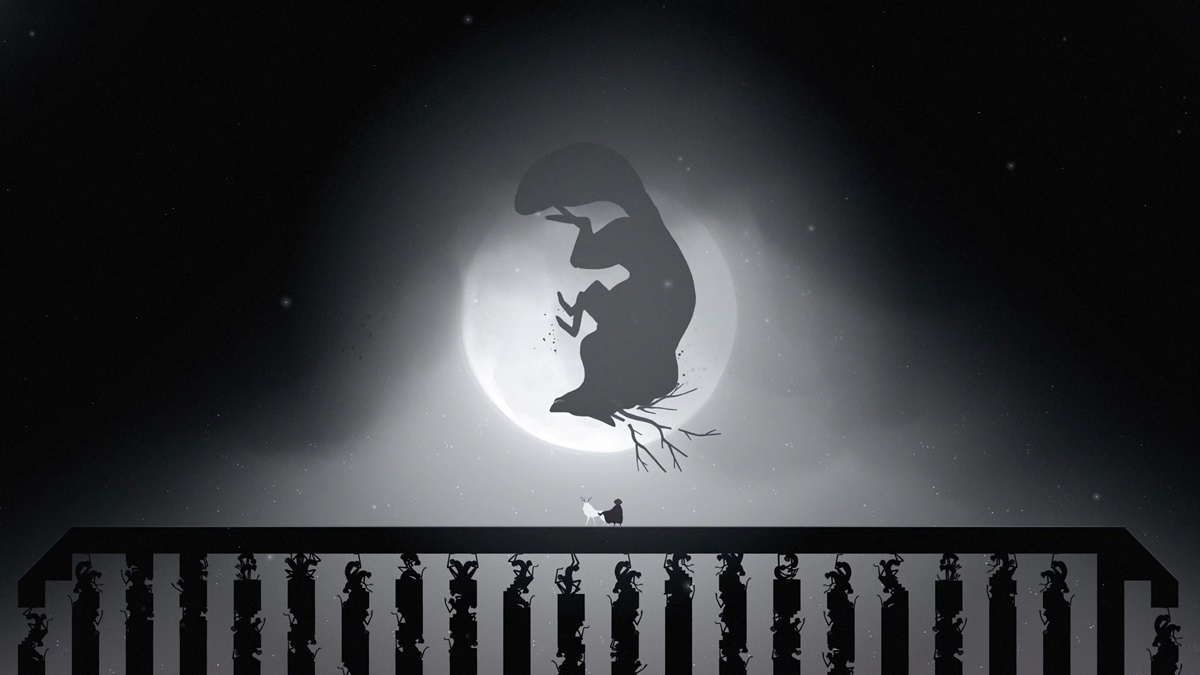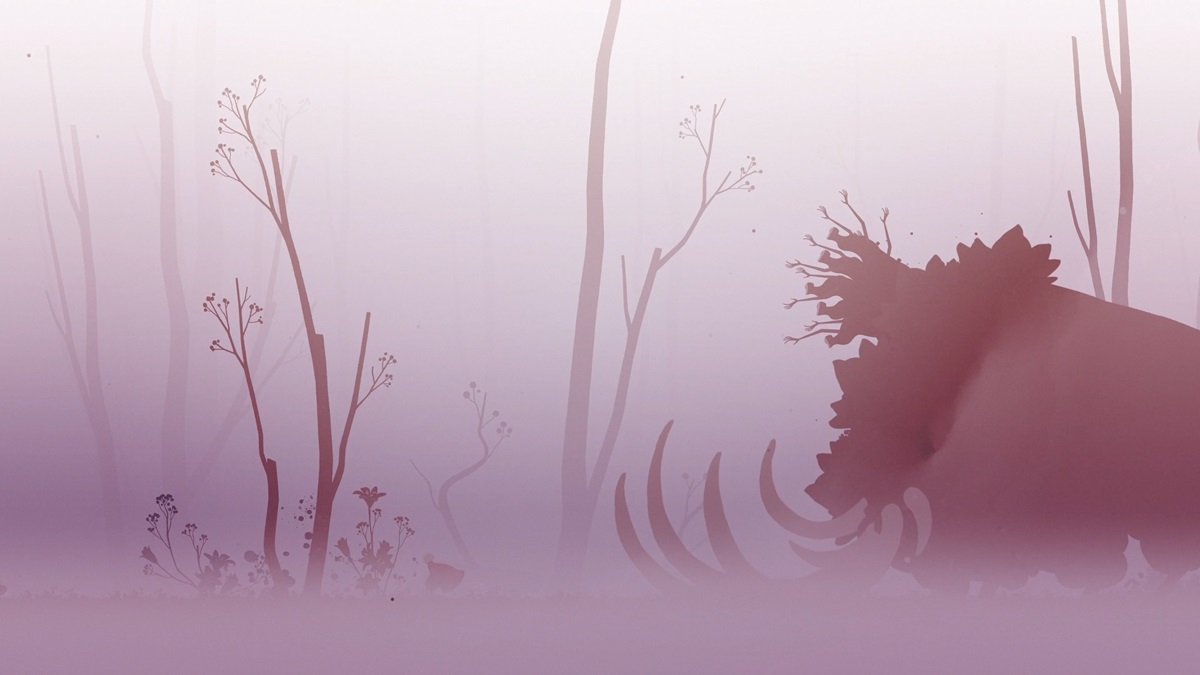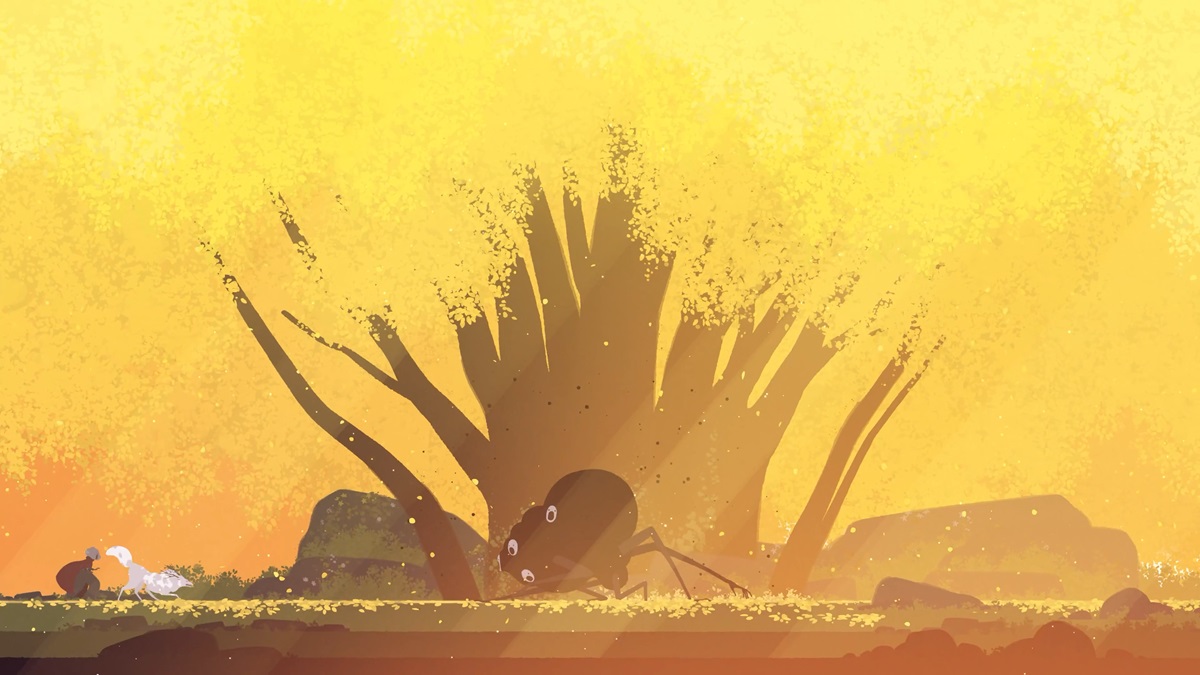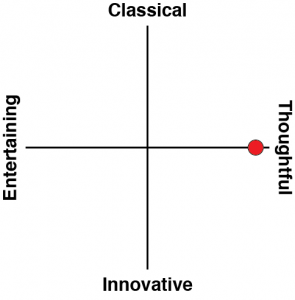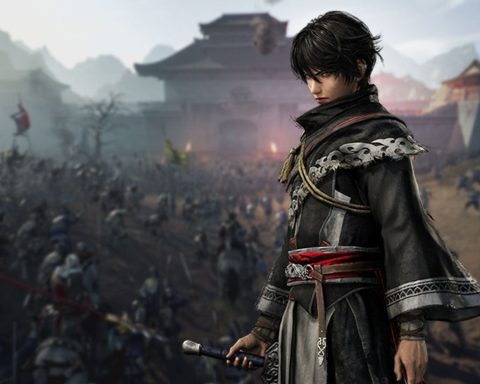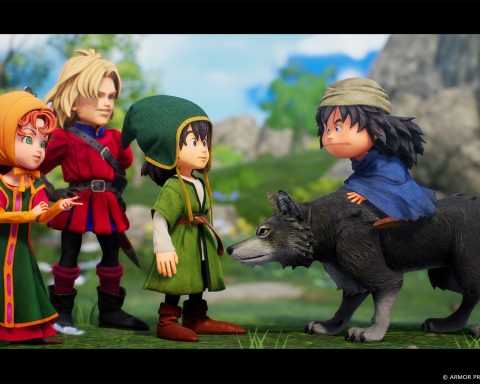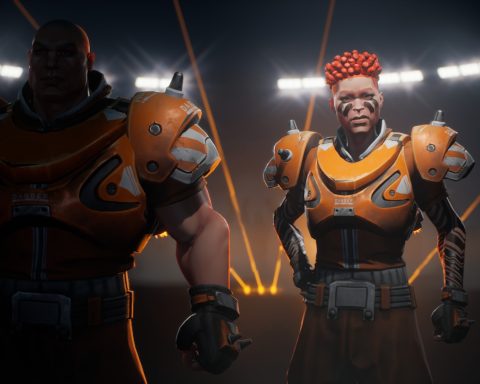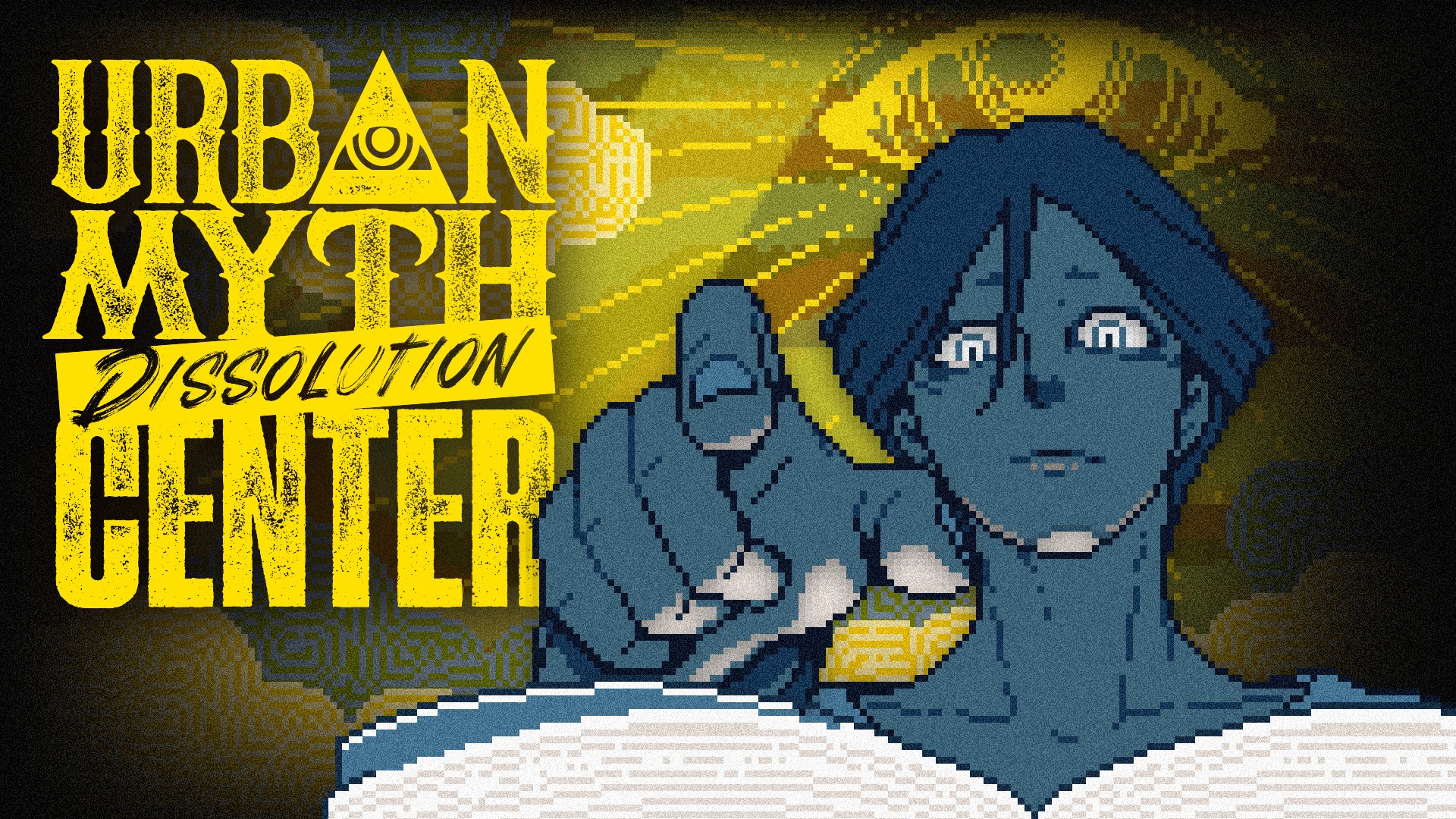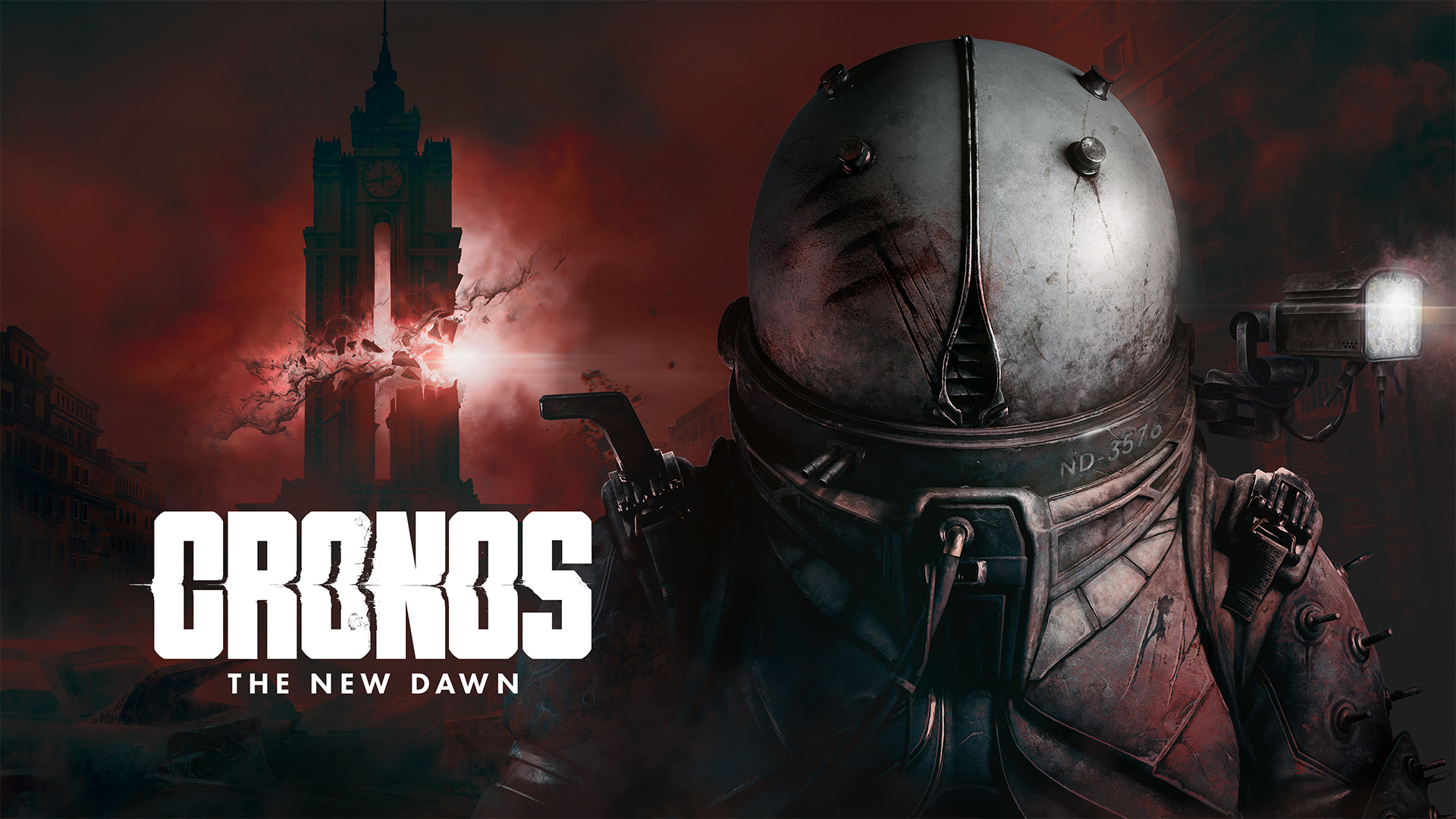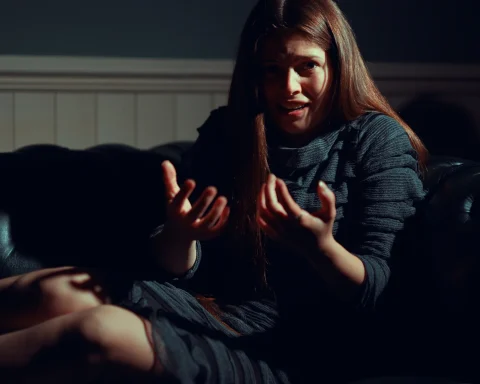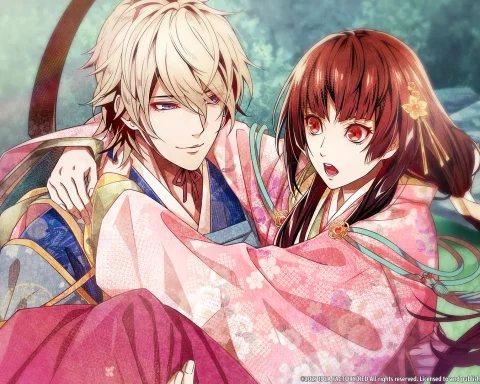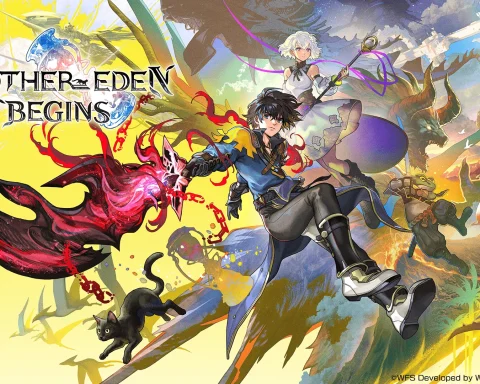Neva’s biggest problem is that it’s an incredibly unsubtle work of art. In fact, it is downright emotionally manipulative. On the other hand, its strength is that somehow that doesn’t matter and you can’t help but be thoroughly lost within it anyway.
Related reading: Our interview with the artist and creative director behind Neva, Conrad Rosset.
It’s pretty obvious, almost from the outset, where the game’s going to end up, given that it’s a blatant muse on life and death and the passage of time. Everything about Neva – the gorgeous art, the hauntingly beautiful soundtrack, the little interactions between the human and her wolf/deer-like companion – are all driving to one single emotional response at the end of the game, and right throughout you’re going to feel like the developer is singlemindedly focused on setting you up to cry at the end of the journey. Honestly, I haven’t played something quite this unsubtle in quite some time, to the point that I did start to wonder if I should find the whole thing a bit cynical.
But then I cried anyway, and realised that despite it being unsubtle and perhaps even cynical, it’s still a breathtakingly beautiful and evocative work of art. I was heavily emotionally invested in Nomada Studio’s second game within seconds of starting it, and ultimately that’s what matters.
While it looks heavily inspired by Studio Ghibli’s Princess Mononoke at first (and, indeed, it was inspired by that work), and while it does have a strong environmental message to share, Neva isn’t actually a story that puts environmental destruction and sustainability themes at its centre. That’s only a secondary theme. The main thrust of Neva is instead about parenting. At the start of the game, the wolf/deer-like companion (Neva) is a pup. She’s curious and playful, but also so vulnerable and unable to defend herself. Alba, the human, assumes the role of the mother and protector after the pup’s actual mother dies in the early moments.
In these early stages, you’ll find your heart skipping a beat when little Neva almost misses her jump across a deep gap. You’ll race to her protection when some evil ghostlike hands grab and restrain her. The only thing that Alba says in the entire game is “Neva”, and yet that lack of dialogue also focuses you on the relationship and dynamics between the two in totality. That single word of dialogue makes it clear that this is all that matters to both of them.
Soon enough Neva starts to grow, and becomes a powerful combatant in her own right, and Alba’s role starts to feel diminished. It’s hard for me to talk about the feelings that a parent has, as I’m not one myself, but Neva is very effective at building empathy within the player, and so it’s easy to understand that there is a sense of loss through the passage of time, as the “child” learns to be independent of the “parent.”
In the background the landscapes slowly shift with age, to become more surrealistic, representing (perhaps) a lack of certainty in what is to come next. While all of this is happening the world seems to be in the process of being overcome with rot-like monsters and darkness. Again, not a parent, but I can only imagine the anxiety that many must feel at the moment as the world itself seems to be becoming wrapped in a darkness of conflict and climate change, and whether they’re going to be able to do anything to protect their increasingly capable, increasingly confident, but unwise children from the danger that is still in front of them.
So while Neva is breathtakingly beautiful, elegant, and backed by an ethereal soundtrack, it’s also a game that has a taste of choaking claustrophobia sitting at the back of the throat and a real-world poignancy that I would suspect just about every modern parent could relate to. It’s not subtle, and it’s even melodramatic at times, but it hits with some serious impact.
Nomada Studio’s previous game, Gris, didn’t feature combat, making Neva the first attempt at action for the team. This was always going to be a creative risk. If the combat was outright bad, it would have left players feeling sour and disconnected to everything else about the game. However, if it was too much of a feature, with too much complexity, players would have also focused on that to the detriment of the narrative meaning.
The developers have managed to create a combat system that’s fairly simple in terms of the moveset, and then make it interesting by designing each encounter to make good use of platforming elements, angles, and the dual protagonists to ensure that each encounter is fresh and additive to the overall experience.
Neva is neither particularly long (you’ll clock it in around six or so hours). Nor is it especially challenging (and there’s a “story mode” which reduces the challenge to nothing if you’re not interested in that side of it). To give you an idea of just how carefully the gameplay has been designed, there are almost no tutorials or guides present in the game. The developers have done a magnificent job of using sight and sound cues to nudge you towards a solution or key objective, without feeling the need to make it glow or have some character spell what you need to do next out for you. That level of precise control doesn’t come without a lot of work, and Neva is a good example of why independent developers would be better off playing to their creative strengths and making something succinct and high-impact rather than constantly trying to use procedural generation to make games that pad out their length as “roguelikes.” Make the time count and players will care so much more.
Neva is what happens when you let actual artists make a game. That we rarely get works like this is depressing, but there’s no sense that anything in Neva was produced according to what a suit thought would be best for the share value. Yes, Neva lacks in subtlety, but it is nonetheless a beautiful, heartfelt and evocative experience. It makes it clear up front that its goal is to make you cry, and even though you know what it’s doing, you are going to cry on cue at the end of it.
